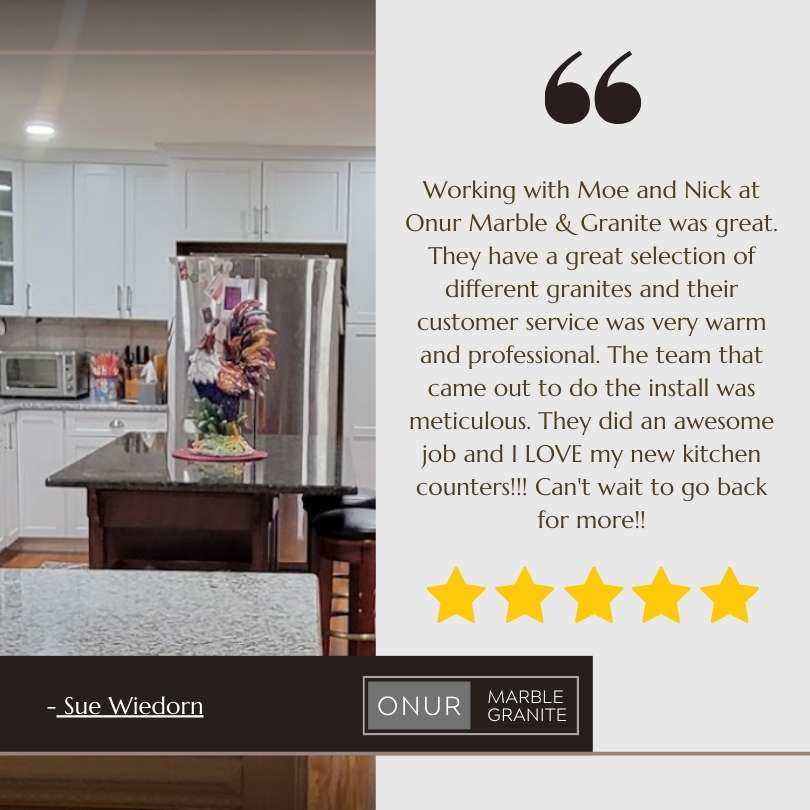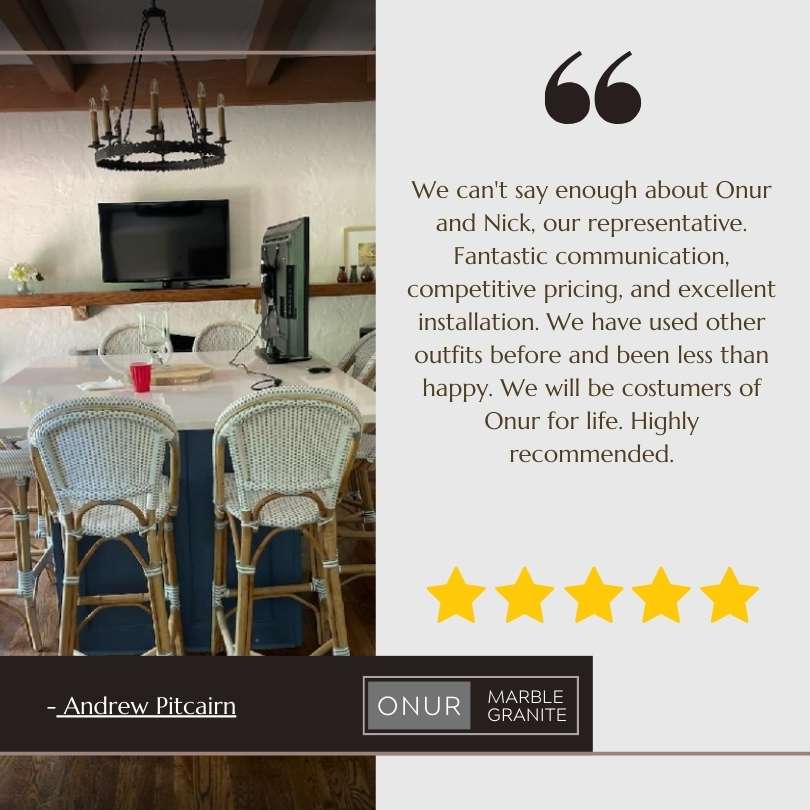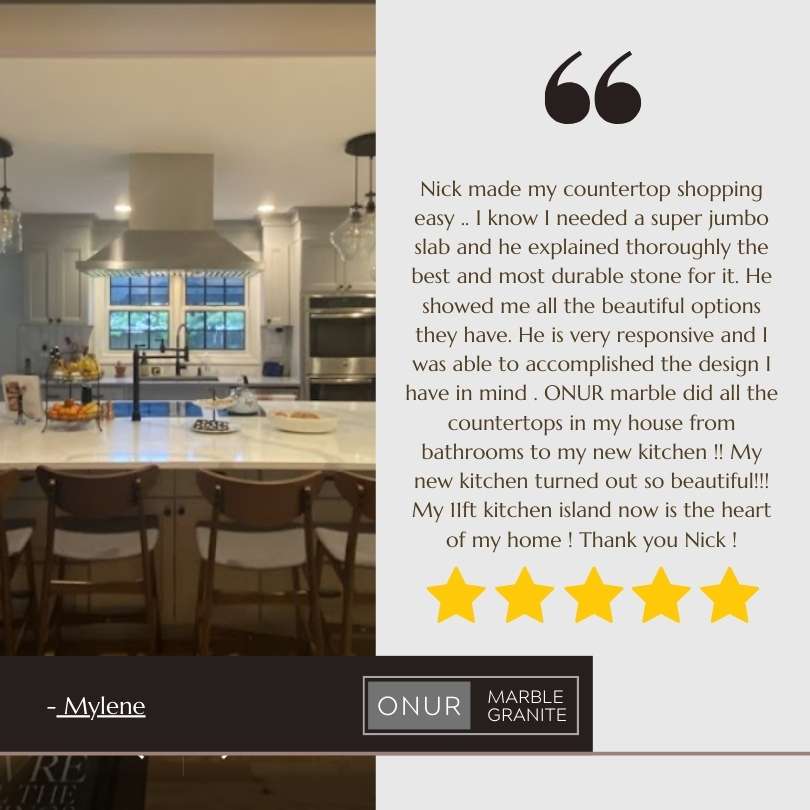Are you planning a kitchen remodel and wondering whether to choose quartz or granite countertops? The decision can be overwhelming, as both materials offer unique advantages and considerations. In this article, we’ll explore the key differences between quartz and granite countertops in terms of composition, aesthetics, durability and maintenance, cost, and environmental impact. By the end, you’ll have a clear understanding of which option best suits your needs and preferences.
Understanding Quartz and Granite
The Composition of Quartz Countertops
Quartz countertops are engineered stone surfaces made from approximately 90% ground quartz and 10% resins, polymers, and pigments. This manufacturing process gives quartz countertops exceptional strength and durability. The addition of pigments allows for a wide range of color choices to complement any kitchen design.
Quartz, a mineral found abundantly in the Earth’s crust, is known for its hardness and resistance to scratching. When combined with resins, polymers, and pigments, it undergoes a transformation that results in a beautiful and practical countertop material.
The resins and polymers used in the production of quartz countertops help bind the ground quartz particles together, creating a solid and non-porous surface. This non-porous nature makes quartz countertops highly resistant to stains, bacteria, and other common kitchen hazards. It also means that quartz countertops do not require sealing, unlike natural stone options such as granite.
Furthermore, the addition of pigments during the manufacturing process allows for a wide range of color options. Whether you prefer a classic white or a bold and vibrant hue, there is a quartz countertop color that will suit your taste and complement your kitchen design.
The Composition of Granite Countertops
On the other hand, granite countertops are naturally occurring igneous rocks formed from molten magma. Composed primarily of quartz and feldspar, granite countertops are renowned for their unique and stunning veining patterns. Each slab of granite is one-of-a-kind, making it a popular choice for those seeking a truly unique kitchen aesthetic.
Granite, a coarse-grained rock, is formed deep within the Earth’s crust under intense heat and pressure. Over millions of years, the molten magma cools and solidifies, resulting in the formation of granite. The presence of quartz and feldspar gives granite its characteristic hardness and durability.
One of the most captivating aspects of granite countertops is the wide variety of colors and veining patterns they exhibit. From subtle and uniform patterns to bold and dramatic swirls, each slab of granite tells a unique geological story. This natural beauty and individuality make granite countertops a popular choice for homeowners looking to add a touch of elegance and sophistication to their kitchens.
It is important to note that, unlike quartz countertops, granite countertops are porous and require regular sealing to maintain their appearance and protect against stains. However, with proper care and maintenance, granite countertops can last a lifetime, becoming a timeless feature in your kitchen.
The Aesthetics of Quartz and Granite
When it comes to choosing the perfect countertop material for your kitchen, aesthetics play a crucial role. Quartz and granite are two popular options that offer unique visual appeal. Let’s delve deeper into the aesthetics of quartz and granite to help you make an informed decision.
Color Variations in Quartz and Granite
One of the key factors to consider when selecting a countertop is the color options available. In this aspect, quartz outshines granite with its vast selection. Whether you prefer a classic white, a soothing gray, or a bold statement color like vibrant red or deep blue, quartz offers a wide range of choices to suit any kitchen style. The versatility of quartz allows homeowners to find the perfect color that complements their cabinetry, flooring, and overall kitchen design.
On the other hand, while granite countertops may have fewer color options compared to quartz, they make up for it with their striking natural patterns that cannot be replicated. Each granite slab is unique, featuring intricate veining, speckles, and swirls that add character and depth to your kitchen. The natural beauty of granite creates a timeless and elegant look that can enhance any kitchen aesthetic, from traditional to contemporary.
Texture and Finish Differences
Texture and finish are also important considerations when choosing between quartz and granite countertops. Quartz countertops often have a consistent and smooth surface due to their engineered production. The manufacturing process allows for a uniform texture that is pleasing to the touch and easy to clean. This makes quartz an ideal choice for those who prefer a sleek and modern look in their kitchen.
On the other hand, granite countertops can vary in texture, offering a range of options to suit different preferences. From high-gloss polished finishes that reflect light and create a luxurious feel, to more rustic honed textures that exude warmth and charm, granite provides versatility in terms of texture and finish. The choice between a polished or honed granite surface depends on the overall style you want to achieve in your kitchen.
It’s important to consider how these differing textures will complement your overall kitchen design and personal preferences. Whether you opt for the smooth and consistent surface of quartz or the varied textures of granite, both materials can add visual interest and enhance the overall aesthetics of your kitchen.
Durability and Maintenance
When it comes to choosing the right countertop material for your kitchen, durability is a key factor to consider. You want a surface that can withstand the daily wear and tear of cooking, cleaning, and other activities. Two popular options that offer impressive durability are quartz and granite countertops.
Quartz Countertop Durability
Quartz countertops are renowned for their exceptional durability. They are engineered using a combination of natural quartz stone and resin, which gives them their strength and resilience. These countertops are highly resistant to scratches, stains, and heat. So, you don’t have to worry about accidentally damaging the surface while chopping vegetables or placing hot pots and pans directly on the countertop.
One of the standout features of quartz countertops is their non-porous nature. Unlike natural stones like granite, quartz is non-porous, meaning it does not have tiny pores or cracks that can trap liquids and lead to staining. This makes quartz countertops incredibly easy to clean and maintain. You don’t have to worry about sealing them regularly to prevent stains from seeping into the surface.
Moreover, the non-porous nature of quartz also makes it highly resistant to bacteria and other microorganisms. This is particularly beneficial for busy kitchens or households with children, where hygiene is a top priority. With quartz countertops, you can rest assured that your kitchen surface is not only durable but also a safe and sanitary space for food preparation.
Granite Countertop Durability
Similarly, granite countertops are known for their impressive durability. Granite is a natural stone that is formed through the cooling and solidification of molten rock deep within the earth’s crust. This geological process gives granite its unique combination of strength and beauty.
Granite countertops are highly resistant to heat and can withstand high temperatures without sustaining any damage. This makes them an excellent choice for avid cooks who frequently use hot pots and pans in their culinary endeavors. You can confidently place your scorching hot casserole dish directly on the granite countertop without worrying about leaving behind unsightly burn marks.
However, unlike quartz, granite is a porous material. It has tiny pores and fissures that can absorb liquids if left unsealed. To prevent staining, it is important to regularly seal your granite countertops. The frequency of sealing depends on the specific type of granite and the manufacturer’s recommendations. With proper care and maintenance, granite countertops can last for decades, maintaining their durability and timeless beauty.
Maintenance Requirements for Quartz
One of the main advantages of quartz countertops is their low-maintenance nature. To keep them looking their best, all you need is a simple cleaning routine. Wipe down the surface with a mild soap and warm water, and you’re good to go. Avoid using abrasive cleaners or scrub brushes, as they can cause damage to the surface. With regular cleaning, your quartz countertops will continue to shine and maintain their durability for years to come.
Maintenance Requirements for Granite
Granite countertops, being porous, require a bit more attention when it comes to maintenance. Regular sealing is essential to prevent liquids from penetrating the surface and causing stains. It is generally recommended to seal your granite countertops at least once a year, although the frequency may vary depending on the specific granite type and usage.
When it comes to routine cleaning, stick to a mild soap and warm water solution. Avoid using acidic or abrasive cleaners that can damage the sealant and compromise the durability of your granite countertops. By following these maintenance guidelines, you can ensure that your granite countertops remain beautiful and resilient for many years to come.
Cost Comparison
Pricing of Quartz Countertops
When it comes to cost, quartz countertops tend to be higher priced than granite due to their manufacturing process and availability of color choices. However, it’s essential to consider the long-term value and durability of quartz, which may offset the initial investment.
Pricing of Granite Countertops
Granite countertops can vary in price depending on factors such as rarity, color, and thickness. While generally less expensive than quartz, higher-end granite options can be on par with or even exceed the cost of certain quartz varieties. It’s important to consult with reputable suppliers to find the best option to fit your budget.
Environmental Impact
Quartz and Sustainability
Quartz countertops have experienced advancements in sustainability, with some manufacturers utilizing recycled materials in their production processes. Additionally, quartz is non-toxic and does not emit harmful chemicals into the environment or the indoor air quality of your home.
Granite and Sustainability
On the other hand, granite countertops are generally considered more environmentally friendly due to their natural sourcing. However, the extraction process can still have an impact on the environment if not properly managed. Look for granite suppliers who prioritize responsible quarrying and sourcing practices to minimize the ecological footprint associated with granite countertops.
In conclusion, the choice between quartz and granite countertops ultimately comes down to personal preference, budget, and the specific needs of your kitchen. Quartz offers a wide selection of colors, exceptional durability, and low maintenance requirements. On the other hand, granite provides a natural and unique aesthetic, with proper care and maintenance required to preserve its beauty. Consider your priorities and consult with professionals to make the best decision for your kitchen remodel. Whichever option you choose, both quartz and granite countertops will undoubtedly elevate the look and functionality of your kitchen for years to come.








